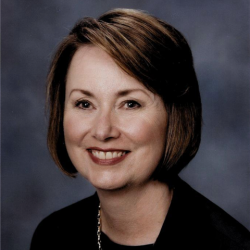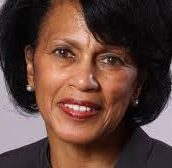Master’s Degrees in Nursing
Related Reading
Master’s of Nursing Opens the Door to Many Careers
If you have a Master of Science in Nursing, the job market is waiting for you with thousands of potential opportunities across the nation and in a multitude of roles.
In this Article
Consider these forecasts:
- The U.S. Bureau of Labor Statistics (BLS) projects that job growth for nurse practitioners will be 44.5% through 2032, making the role one of the fastest growing job segments in the nation.
- According to Joseph Dunmire, a board member for the National Association of Healthcare Recruitment (NAHCR): “Nationally, expectations are that there will be more than a million RN vacancies by 2024.”
- Over the next five years, Dunmire also expects high demand for advanced practice nurse midwives and clinical nurse specialists.
- A report by the Association of American Medical Colleges projects that by 2032 there will be a shortage of more than 21,000 primary care doctors and 24,000 specialists. Nurse practitioners—one type of job held by those with a master’s—are expected to help cover the shortfall.
Clinical and Nonclinical Roles
With these healthcare shortages, nurses with MSNs have many career paths to choose from, both clinical and nonclinical.
Dunmire says more than 20% of all licensed RNs are not engaged in direct patient care.
Many with MSN degrees choose instead to move into nonclinical roles in research, data analysis, executive management, administration, teaching, public policy, and government.
A shortage of nurses means that MSNs have many career paths to choose from, in both clinical and nonclinical fields.
For most, but not all, MSN nursing positions, certification is required or recommended if they involve a specialty. There are a large number of certification programs approved by the American Board of Specialty Nursing Certifications (ABSNC), as well as other organizations.
We can’t cover all career possibilities here, but we can give you several examples of what you can do with an MSN.
Advanced Practice Registered Nurses (APRNs)
Advanced practice registered nurses (APRNs) include nurse practitioners, clinical nurse specialists, nurse anesthetists, and nurse midwives, according to the American Nurses Association (ANA). APRNs are often primary care providers and are at the forefront of providing preventive care for patients. In some rural hospitals and in remotes areas, doctors may not be available, and the only medical provider onsite may be an APRN.
You’ll find them in all healthcare settings from trauma centers, teaching hospitals, and long-term care facilities to rural hospitals, private practice, public health clinics, and outpatient surgery centers.
In many states, according to the American Association of Nurse Practitioners (AANP), MSNs with practitioner certification are permitted to operate autonomously and:
In these states, APRNs work under the exclusive licensing authority of the state board of nursing. In others, MSN nurses with practitioner certification may be permitted to perform similar duties under a collaborative agreement with a doctor or under the supervision of a doctor.
The APRN specialty roles are:
Degree Requirements Changing for Nurse Anesthetists by 2025

Currently, the required minimum education for a CRNA is an MSN. However, by 2025, they will need a doctorate (DNP) in nurse anesthesia. Candidates need to confer with school advisors to make sure the programs they’re considering will meet this requirement.
MSN Generalists
Someone with an MSN can also pursue an MSN Generalist path, which opens the doors to several other nursing positions.
Nonclinical MSN Career Paths
Not all MSN degree-holders are working in clinical roles directly with patients. A master’s degree can also open the door to leadership and teaching careers.
Earning a Master of Science in Nursing
Take a step up with a BSN-to-MSN Bridge Program
Take a shortcut with an RN-to-MSN Bridge Program
Earning an MSN Online: Is It Right for You?
Joint Master’s Degrees: Are They Worth It?
If your goal is to qualify for an executive leadership position at the strategic business, operational, or policy level, consider a dual master’s degree. They are often listed as a preferred credential for these senior positions and are designed to give RNs the additional perspective and education necessary to succeed. The three most common dual master’s degree programs are:
These programs are usually designed for completion in three years, so they take less time and cost less than earning two master’s degrees. Having a dual master’s may appeal to prospective employers and help you get jobs at more senior levels and earn a higher income.
What Can I Earn With an MSN?
Salaries vary widely for nurses with MSNs, depending on your role, specialty, education, certification, experience, workplace, and location.
Whichever career path you choose, Dr. Beverly Malone, PhD, RN, FAAN and CEO of the National League of Nursing (NLN), urges you to use your compassion to optimize your success and your joy in nursing. Ultimately, she says, “You can have everything else–the skills and the ability to suture–but if you don’t have compassion, it doesn’t matter.”




